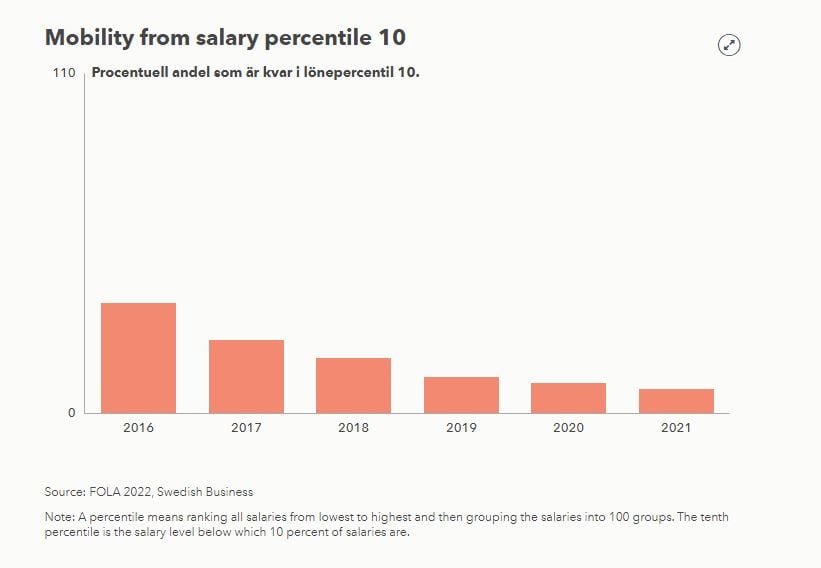Salary is compensation for work. What level the salary should be at is a matter of assessment and negotiations. The vast majority are interested in knowing which one salary you can get in various professions. Then you can, for example, botanize salary statistics. However, the figures should be read with caution. There are many factors that affect the salary you get.
When a boss in a business or a workplace sets the salary for an employee, it is usually said that three factors are important: how well the work is done, which competence is required for the work and how much access there is to people with similar skills and competence. It is often said that you should make a difference between person and performance, and that is true here. It is the employee's performance that is valued in the work, not the person.
Collective agreement and salary interview
Most employees and employers in Sweden are covered by collective agreements. A collective agreement is a written agreement between the party's labour market, that is, the employers' organizations and trade unions. The collective agreements regulate, among other things, salaries and other compensation such as overtime compensation.
A collective agreement is negotiated primarily at two levels: central and local. The central collective agreement entered into between different industries' employers and trade unions. The agreements can look different, you usually talk about different agreement constructions. In many cases, local ones have also closed afterwards a collective agreement between individuals business and local trade unions. Collective agreements determine the level to which wages must be maintained. In the most collective agreement, there are also provisions on starting salary, i.e. one salary which is paid to a person who has limited work experience and who starts with simpler tasks. Forbusinesswhich lacks collective agreement however, there are no rules on the size of the salary.
An employee's specific salary is ultimately determined by the employment contract concluded between the individual employer and the employee. Then the salary level normally changes through salary interviews. Consistently, all these agreements, the central, the local and finally the individual, can lead to improvements but must not lead to worse conditions compared to the previously concluded agreements.
Wage contract negotiations:

From the left: central collective agreements (employees and employer trade unions sign agreements), local collective agreements (businesses and local unions sign agreements), individual employment agreements (individual employers and individual employees sign agreements).
Does the salary increase over the years?
Usually, an employee's skill increases and salary over the years, either because the employee gets better at what she does or because she can take on new tasks, or alternatively change jobs. An employee with a low salary often has the opportunity to increase their salary and do so relatively quickly. There have been several surveys that have looked at wage mobility, among other things this is done in the Swedish Business Association's report "Facts on wages and working hours". Of the people who belonged to the tenth with the lowest salary in 2015, eight out of ten had moved up the salary ladder within 6 years. Six out of ten people left the lowest salary level already in the first year.

Take the statistics with a grain of salt
It is difficult to determine how much a certain person should have in salary. Often, the employee's work is assessed based on previously formulated goals and expectations. In addition, market forces are important. This means that if there are few workers who has the skills that the job requires, the salary can be higher. In addition, it is important how the company is doing financially and where in the country it is located. The salary is also affected by a number of other factors related to the work. Examples of these can be:
- how difficult the work is
- what requirements are set in the work
- what responsibility the work entails
- what level of education is required
- if the work environment is stressful
- if the duties include being a project manager or manager
- what other business pays for similar tasks.
As a help, there are salary statistics that you can look at. Salary statistics are often based on factors such as occupation, age, and where applicable degree and year of the degree. Such a database with salary statistics can be found, among other things, on the website of the Central Statistics Office. However, it is important to remember that the statistics only tell us what groups of people have an average salary, not what a particular employee should have in salary.
Which salary should I have?
If you want to know a little more precisely which salary that apply to a specific occupation, you should turn to the labor market parties, namely trade unions and employer organisations, within the specific industry. They have a lot of knowledge about what salary formation looks like in their particular industries.
You can read more about how wages have developed in Sweden over time here and how wages have developed in comparison to other countries here.


